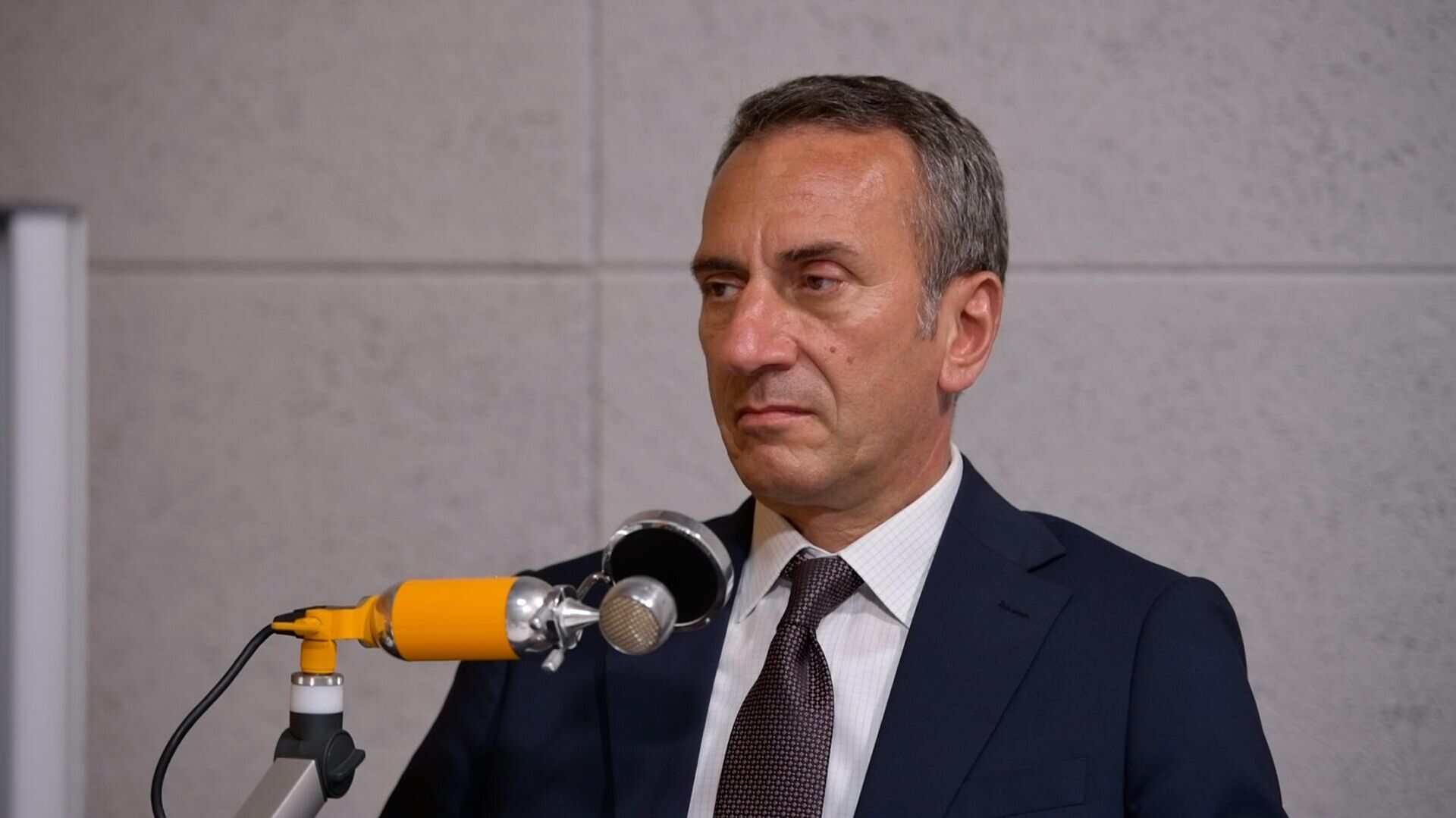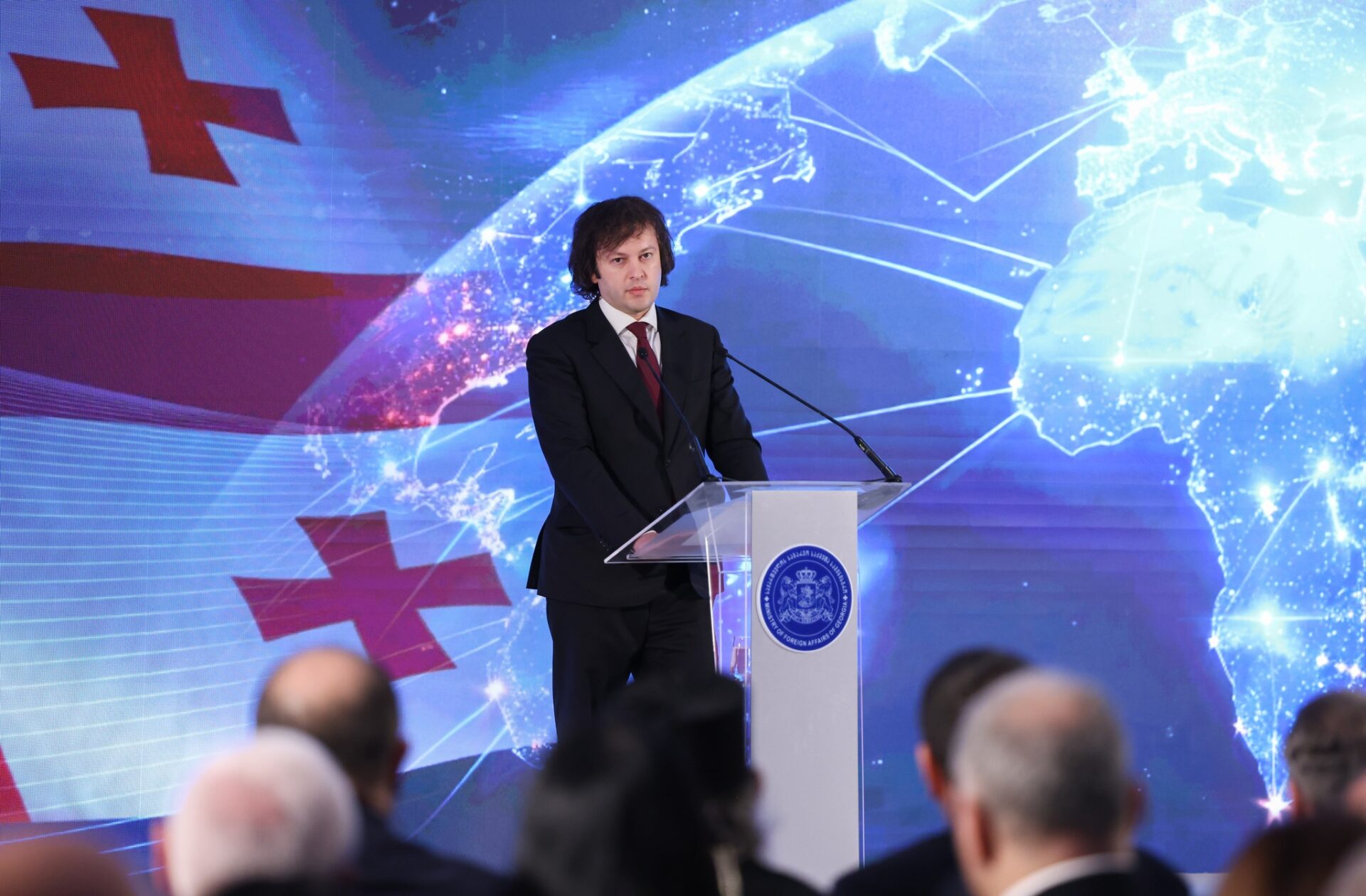
Georgian Dream Seeks to Reset U.S.-Georgian Relations
Georgian Dream Seeks to Reset U.S.-Georgian Relations
Executive Summary:
- Georgia seeks a diplomatic reset with the U.S. President Donald Trump Administration following strained relations due to contested October 2024 parliamentary elections and subsequent protests.
- The Georgian government accuses an invisible “deep state” of anti-Georgian sentiment in the West and hopes that the Trump Administration will defeat it and restore a cooperative strategic partnership with Georgia.
- Georgian Dream appears willing to align with the Trump Administration on key geopolitical issues, but U.S. congressional support for sanctions and democratic reforms under the MEGOBARI Act may complicate Tbilisi’s ambitions.
On March 14, Georgian Foreign Minister Maka Bochorishvili met with U.S. Ambassador to Georgia Robin Dunnigan (U.S. Embassy in Georgia, March 14). The Georgian Ministry of Foreign Affairs stated, “The discussion focused on the agenda for strengthening cooperation between Georgia and the United States, underscoring the need for positive momentum in their partnership, which is rooted in shared values and interests” (Georgian Foreign Ministry, March 14). Notably, Bochorishvili and Dunnigan did not shake hands during the protocol photo shoot (Interpressnews, March 14). The U.S. Embassy issued a very brief statement following the discussion, stating, “Ambassador Dunnigan met Foreign Minister Maka Botchorishvili today to outline [U.S.] President [Donald] Trump and Secretary [of State Marco] Rubio’s top priorities and steps that Georgia can take to demonstrate its seriousness about improving its relationship with the United States” (U.S. Embassy in Georgia, March 14). Georgia hopes to reset relations with the United States under the Trump Administration as it faces domestic and international opposition following the October 2024 parliamentary elections.
The Georgian government is facing a “boycott” from most Western partners amid a massive, long-running protest movement in the country. The main opposition parties do not recognize the results of the October 26, 2024 parliamentary elections as legitimate and are demanding new parliamentary elections, as well as the release of all “political prisoners” arrested during clashes between protesters and police late last year (see EDM, December 6, 10, 2024). At the end of last year, Georgia’s top leaders frequently criticized Dunnigan for supporting the Georgian opposition and failing to recognize the results of the parliamentary elections.
In December 2024, Kobakhidze said that he had high hopes for when the Trump Administration would take office on January 20. He claimed that “[Dunnigan] will be freed of [the former U.S. administration’s] influence” that led the embassy’s activities in the “wrong direction” (1tv.ge, December 4, 2024). He further argued, “You can see that the concrete actions of the embassy have taken on a comical appearance,” the head of the Georgian government contended. Kobakhidze also accused Dunnigan of violating the Vienna Convention on Diplomatic Relations because of her actions in favor of the opposition and non-recognition of the official results of the October 2024 parliamentary elections (1tv.ge, December 4, 2024).
After Bochorishvili met with Dunnigan, Kobakhidze changed his rhetoric and stated that his government’s “top foreign policy goal is to start over with strategic cooperation with the United States” (1tv.ge, March 19). He stated, “We have already made multiple public remarks expressing our intention to fully reset relations, to begin a strategic collaboration from scratch, and to do so with a precise roadmap reflecting concrete objectives” (1tv.ge, March 19). He also added that regarding Georgian-U.S. relations, “There is alignment, the main thing is that concrete steps are taken. This will largely depend on how the deep state in the United States is ultimately defeated” (1tv.ge, March 19). The concept of the so-called “deep state” has been used by Georgian Dream to describe an invisible enemy with an “anti-Georgia” agenda (Civil.ge, January 8; see EDM, January 13, March 12).
Mamuka Mdinaradze, the leader of the parliamentary majority and one of the most influential figures in the ruling Georgian Dream party’s leadership, announced the introduction of a bill that “targets opposition groups deemed hostile to the state” (Civil.ge, March 28). He warned that despite western criticisms, in the near future, the government will ban the party of former President Mikheil Saakashvili, the United National Movement (UNM), as well as several other opposition parties, and will adopt all those laws that the opposition considers “anti-democratic and repressive” (see EDM, February 11, March 12; Civil.ge, March 28).
Earlier, Mdinaradze made it clear that Georgian officials expect that the Trump Administration must defeat the “deep state.” He stated, “The deep state must be defeated by the new U.S. administration and forced to stop attacks against Georgia and its legitimate government,” alluding to the ongoing protests and opposition actions across Georgia (Interpressnews, March 10). He concluded by claiming that the ultimate test of whether the United States has been able to defeat the “deep state” will be its attitude toward Georgia and how it will cooperate with Georgia in the future. Mdinaradze claimed that, by waging the “proxy war against Russia at the hands of Ukraine,” the “deep state tried and is trying to drag Georgia into this war.” The main goal of these alleged actions, he stated, “is to overthrow the Georgian government, replace it with an agent, and establish full control over the government.” Finally, Mdinaradze noted that “so far there are no signs of [the ‘deep state’s’] defeat or even weakening” (Interpressnews, March 10).
Some Georgian experts claim that Georgian Dream and its honorary leader, Billionaire Bidzina Ivanishvili, are ready to cooperate with the Trump Administration on geopolitical issues that are important to the White House. David Avalishvili, of the independent news outlet Nation.ge, drew attention to how the Georgian government has indefinitely postponed the signing of an agreement on the construction of a large deep-water port in Anaklia on the Black Sea by a Chinese state-owned company (Radio Free Europe/Radio Liberty, May 29, 31, 2024; Transparency International, June 5, 2024; see EDM, June 6, 2024; see China Brief, June 21, 2024; China Observers, July 10, 2024). In his March 30 interview with this author, Avalishvili recalled that the Trump Administration actively opposed the People’s Republic of China’s (PRC) construction of a deep-water port on the Black Sea in 2019 (Georgia Today, June 6, 2019). Avalishvili said, “The Trump team was then concerned that Iran could use this port in some form, and these doubts have not disappeared.” According to the expert, in this matter, Georgian Dream may be looking for a “coincidence of interests” with the White House, trying to build a partnership with the new U.S. administration on the condition that the legitimacy of the 2024 parliamentary elections is recognized (Original Interview Conducted by the Author with David Avalishvili, March 30).
Currently, Georgian Dream is concerned that the U.S. Senate Foreign Relations Committee approved the Mobilizing and Enhancing Georgia’s Options for Building Accountability, Resilience, and Independence (MEGOBARI) Act on March 27. In Georgian, megobari (მეგობარი) means friend. This bipartisan bill reaffirms support for the Georgian opposition and the country’s Euro-Atlantic integration (U.S. Senate, March 5). If passed by the Senate and signed by the president, the MEGOBARI Act would impose tough sanctions on Georgian officials (Civil.ge, March 27). The trajectory of Georgian-U.S. relations remains to be seen, but it appears that Tbilisi holds out hope for a reset over the course of the Trump Administration.


